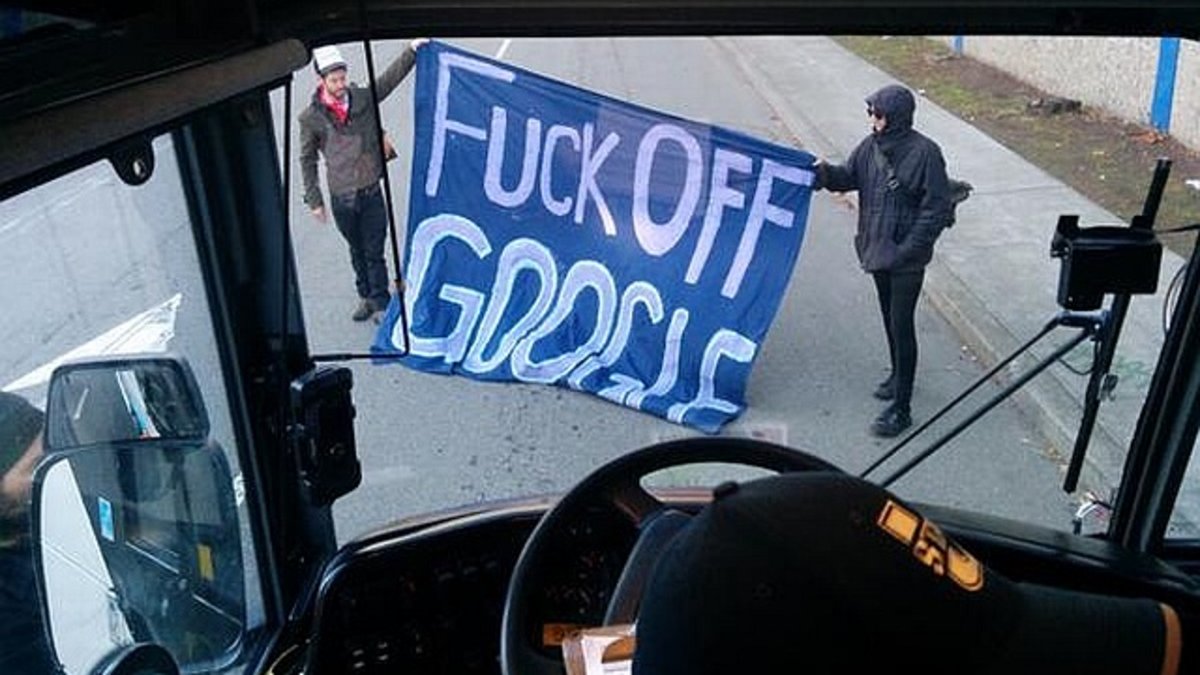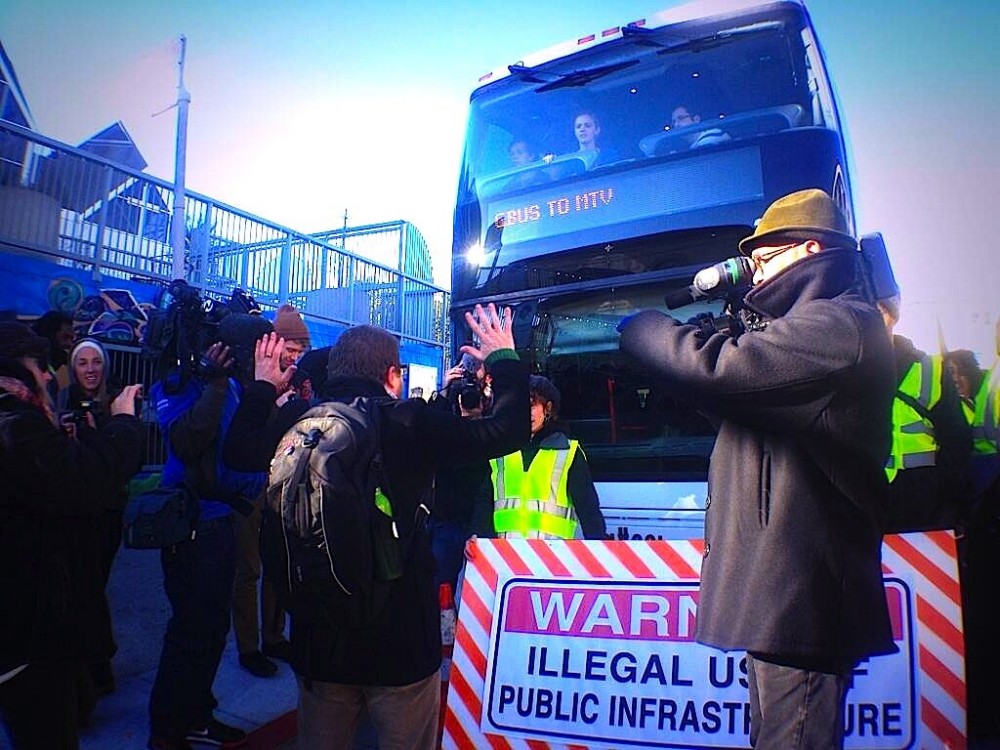
SAN FRANCISCO – For the many bus drivers who carry high-paid young people from San Francisco and around the Bay Area to their jobs in Silicon Valley, it's hard making ends meet – and now those drivers are demanding to be heard.
“I have to work early in the morning, when the employees are beginning to head to work at their company’s headquarters," said Thomas, a bus driver for one of the area's top tech corporations, which means "often as early as 4:30 in the morning.”
But it doesn’t end with that one shift. Instead, companies like Facebook, Google, Apple and others are using “split shifts” whereby drivers work a few hours in the morning, are relieved of duty during the day, then return to bring workers back to San Francisco and other locations more than an hour from their places of employment.
“It is a way that companies have been using [us] in order to avoid hiring more drivers and reducing the amount of overtime that they have to pay us," Thomas added. "And it just is hurting our ability to get a second job and then survive with our families."
Occupy.com met this week with a handful of shuttle drivers in San Francisco who work for some of the most recognizable brands in the tech world. And the overall sentiment was that they're being used and abused.
“We have very little recourse [or what] we can do in order to get better pay, better hours or simply start a conversation with management at these companies, because they know they can hire others if we don’t like their demands,” said one bus driver for Facebook.
The Drive to Unionize
This struggle, the driver said, is the impetus behind the group's drive to unionize, which will force Facebook and other firms to think twice about how the drivers of their well-paid employees are treated.
“It’s the most important thing I have been a part of in a very long time and we deserve better,” the driver added.
The drivers confirmed a number of reports about shuttle drivers’ pay, which ranges from $18 an hour to around $22. For many of the drivers who have families, the wages and benefits they receive are barely enough to support a family, let alone themselves.
“It does sound like it is a lot of money for an hourly wage, but it is barely enough money to buy food, pay bills and be secure,” the Facebook driver continues. “This is about justice and equality. If we are driving employees who are making three times or more than us, is it not fair that we want a living wage?”
The tech shuttle buses have become something of a tipping point for social justice activists and organizations across the region. Protests over the past year have sprouted up at governmental bus stops in San Francisco and Oakland over tech companies' use of public space and infrastructure without paying fees or fines for using those municipal bus stops.
Activists point to the fact that many of the bus drivers can't afford to live in San Francisco, or even within an hour of the Silicon Valley companies they work for. The reason: it’s too expensive.
“People look at us when we start talking about a union as if we are crazy and that we are expecting to lose our rights as workers," another driver named Will told Occupy.com.
"But it is the only way for us to be heard and work together. I hope that we can get the other drivers who work for other companies to join with us in the future and create a larger union where us bus drivers are given a way to live in this region while we perform our duties.”
With the assistance of the International Brotherhood of Teamsters, Facebook drivers have called on CEO Mark Zuckerberg to intervene on their behalf to increase wages and reduce the number of split shifts being forced on the drivers. The drivers are contracted by Loop Transportation.
“This is not about greed. This is about life and our families," added the Facebook driver, who asked not to be named. "We don’t want to be rich, we want to be secure."
While Facebook does not pay the drivers directly, the drivers feel that if the company and other tech firms wanted to pay the drivers a few extra dollars per hour, it could happen without much fanfare.
“While your employees earn extraordinary wages and are able to live and enjoy life in some of the most exclusive neighborhoods in the Bay Area, these drivers can’t afford to support a family, send their children to school, or, least of all, afford to even dream of buying a house anywhere near where they work,” wrote Rome A. Aloise, secretary-treasurer and principal officer of Teamsters Local 853.
“This is reminiscent of a time when noblemen were driven around in their coaches by their servants,” he added. “Frankly, little has changed; except the noblemen are your employees, and the servants are the bus drivers who carry them back and forth each day.”
Loop Transportation's president Jeff Leonoudakis told The New York Times that the company gives its drivers a “generous medical and dental insurance plan,” plus vacations, sick leave and holiday pay – which serves as the argument against raising wages.
“In keeping with the fact that we provide this high level of wages and benefits to our drivers, I don’t think the union is necessary in this case,” he told the newspaper.
It's a tough pill to swallow for drivers in an industry with the highest paying jobs in the region – and who often drive around 20-somethings making six figures while they struggle to put food on the table and clothes on their families’ backs.
“I think the most important thing I would want people to know is that we are only asking for minimal raises and secure hours where we can have the time to spend with our loved ones," added Will. "If that is too much to ask in today’s world, then I don’t know."
3 WAYS TO SHOW YOUR SUPPORT
- Log in to post comments













